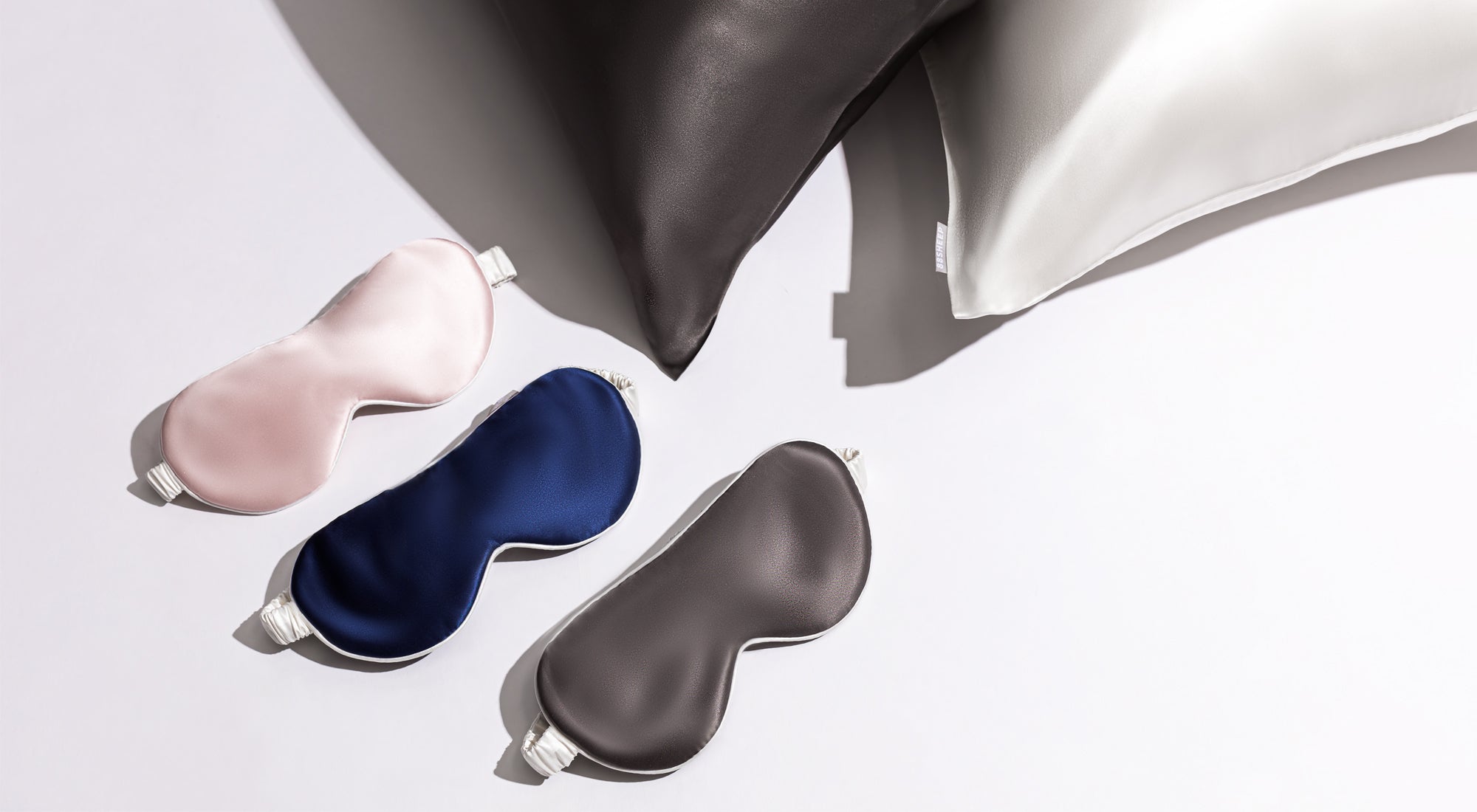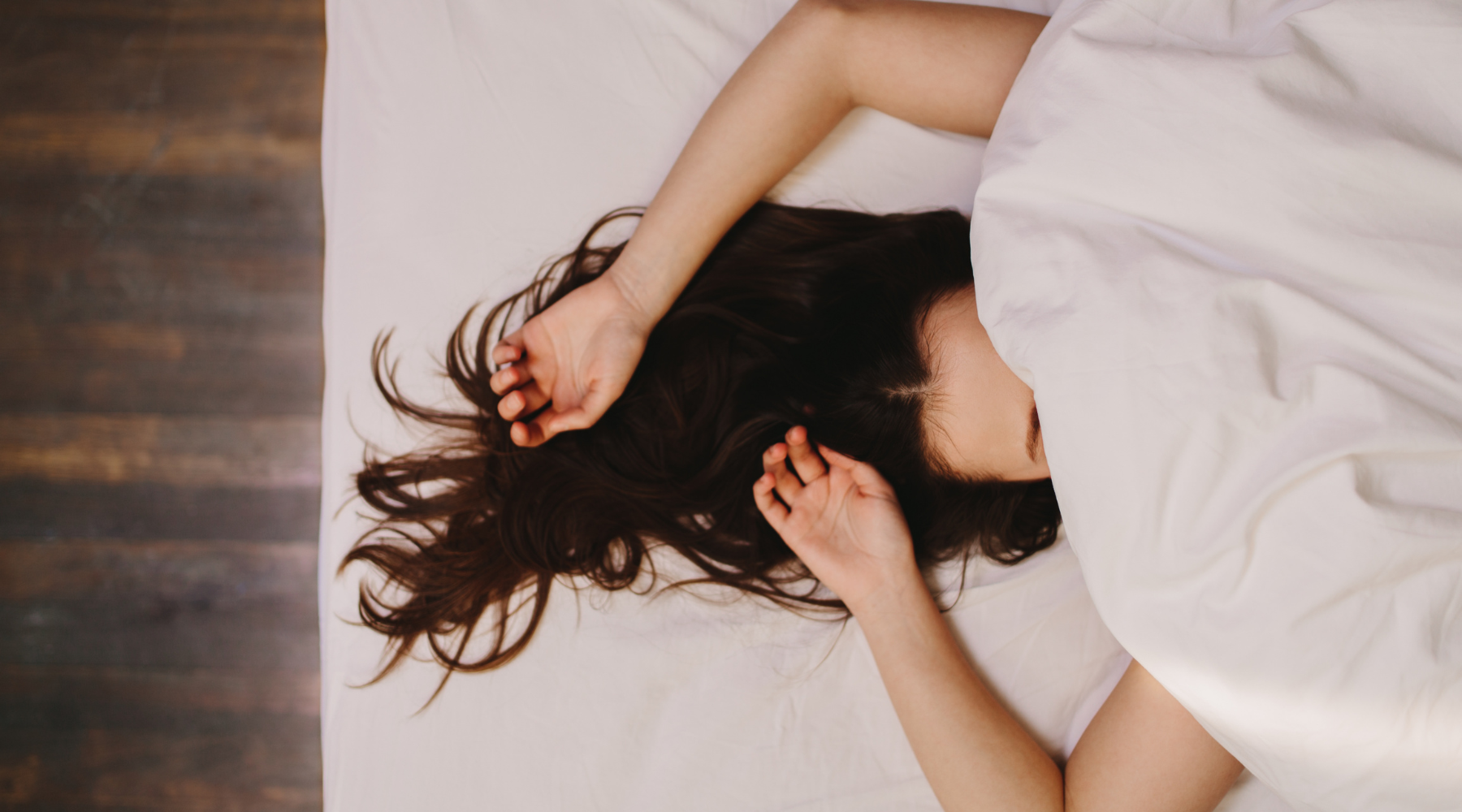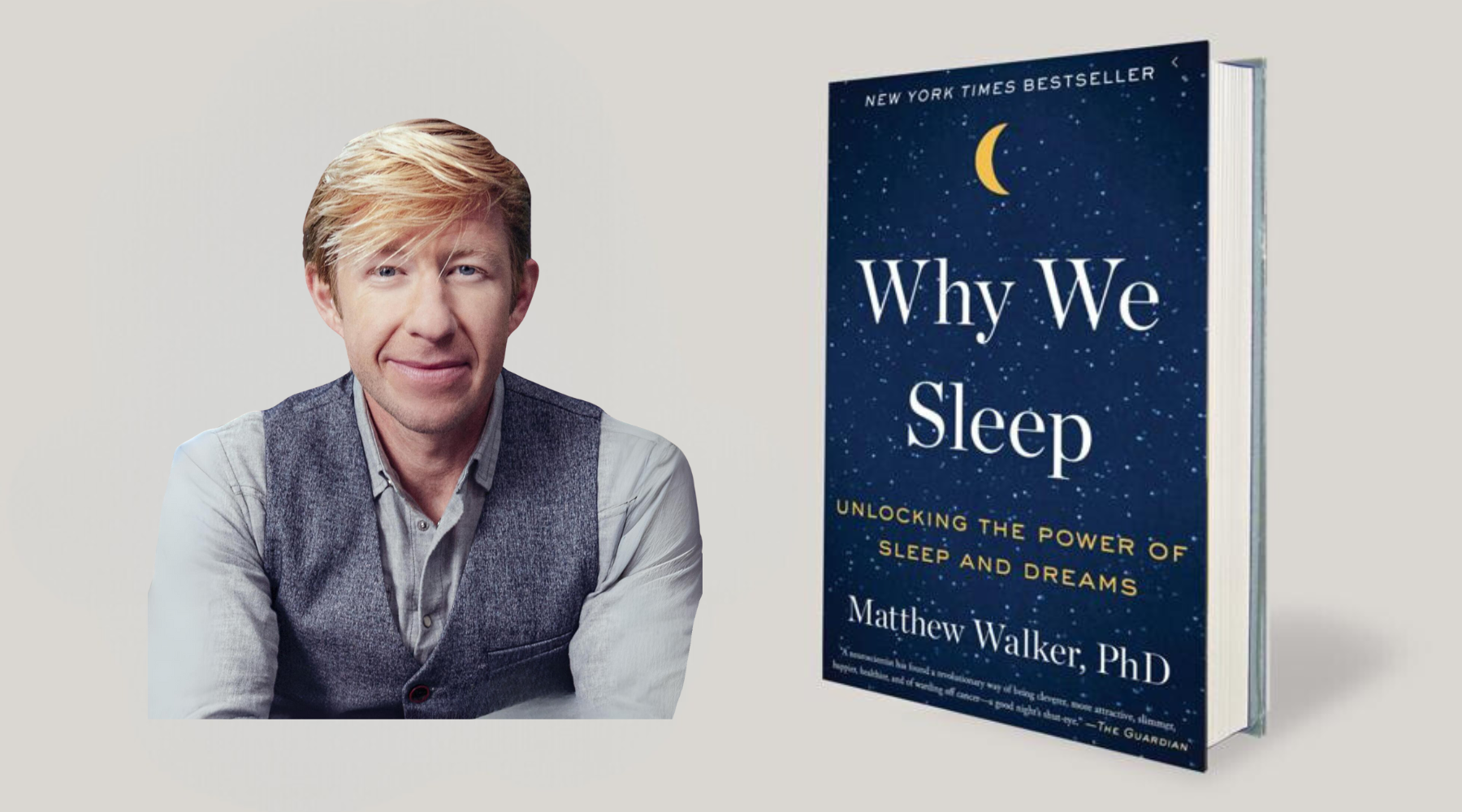Unboxing Tranquility: A Beginner's Guide to Sleep Masks

In our quest for better sleep, we often overlook one of the simplest yet most effective tools: the sleep mask. Whether you're dealing with a bright bedroom, trying to catch some shut-eye during travel, or aiming to improve your overall sleep quality, a sleep mask can be your ticket to dreamland. Let's dive into the world of sleep masks and discover how this small accessory can make a big difference in your sleep routine.
Why Use a Sleep Mask?
Before we explore the features of sleep masks, let's understand why they're more than just a luxury item:
- Light Blocking: Our bodies are programmed to be awake when it's light and asleep when it's dark. A sleep mask creates a dark environment, signaling to your brain that it's time to sleep, even if your surroundings are bright.
- Melatonin Production: Darkness stimulates the production of melatonin, the hormone that regulates our sleep-wake cycle. By blocking out light, sleep masks can help boost your natural melatonin levels.
- Deeper Sleep: Studies have shown that wearing a sleep mask can lead to increased REM sleep and decreased wakefulness during the night.
- Eye Relief: Sleep masks can provide gentle pressure on your eyes, which some people find soothing. They can also prevent dry eyes by reducing air exposure.
Choosing the Right Sleep Mask
Not all sleep masks are created equal. Here are some factors to consider when selecting your perfect sleep companion:
Material
The material of your sleep mask significantly affects both comfort and functionality. Let's explore some common materials in depth:
-
Silk: Silk sleep masks are often considered the gold standard for luxury and comfort. Here's why:
- Hypoallergenic: Silk is naturally resistant to dust mites, fungus, and other allergens, making it ideal for those with sensitive skin or allergies.
- Temperature Regulating: Silk adapts to your body temperature, keeping you cool in summer and warm in winter.
- Skin and Hair Friendly: The smooth surface of silk reduces friction, which can help prevent wrinkles and bed head.
- Moisture-Wicking: Silk can absorb up to 30% of its weight in moisture without feeling damp, helping to keep your skin dry and comfortable.
- Longevity: With proper care, silk masks can last for years, making them a worthy investment.
-
Cotton: A popular choice for its natural and breathable properties:
- Breathability: Cotton allows air to circulate, preventing heat and moisture build-up.
- Softness: High-quality cotton masks can be incredibly soft against the skin.
- Easy Care: Cotton is typically machine washable, making it easy to keep clean.
- Affordability: Cotton masks are often more budget-friendly than silk alternatives.
- Customization: Cotton masks come in a wide variety of colors and patterns.
-
Synthetic Materials: Often used in contoured masks, synthetic materials offer their own benefits:
- Lightweight: Materials like polyester or nylon can create ultra-light masks.
- Durability: Synthetic materials often hold up well to frequent use and washing.
- Flexibility: These materials can be molded into various shapes for contoured designs.
- Quick-Drying: Ideal for travel, as they dry faster than natural fibers.
- Cost-Effective: Synthetic masks are often the most affordable option.
-
Memory Foam: A newer entry in sleep mask materials:
- Contouring: Memory foam molds to your face shape for a personalized fit.
- Pressure Relief: It distributes pressure evenly, reducing discomfort during side sleeping.
- Light Blocking: The dense material is excellent at blocking out light.
- Noise Reduction: Some memory foam masks offer slight sound dampening properties.
- Temperature Sensitivity: It may feel warm in hot environments but cozy in cooler ones.
Design
Sleep masks come in various designs to suit different needs:
- Flat Masks: Simple and lightweight, these lie flat against your eyes. They often feature a large coverage design for effective light blocking and can be filled with soft materials for comfort. Some are reversible, offering versatility in use.
- Contoured Masks: These are shaped to fit the contours of your face, allowing your eyes to blink freely without pressure on your eyelids.
- Weighted Masks: Some masks include gentle weights, which can provide a calming, grounding effect similar to weighted blankets.
Features to Look For
- Adjustable Strap: Ensures a comfortable fit for different head sizes.
- Light-Blocking Efficiency: Check for any light leakage around the nose area.
- Breathability: Important for comfort, especially if you tend to get hot while sleeping.
- Washability: Regular cleaning keeps your mask hygienic. Different materials may require different care methods.
- Portability: Consider if the mask comes with a travel case for on-the-go use.
How to Use Your Sleep Mask
Using a sleep mask is straightforward, but here are some tips to maximize its benefits:
- Clean Your Face: Remove makeup and cleanse your face before putting on your mask to keep it clean and prevent skin irritation.
- Adjust for Comfort: Position the mask so it sits comfortably over your eyes and adjust the strap for a snug but not tight fit.
- Create a Routine: Incorporate your sleep mask into your bedtime routine. Putting it on can be a signal to your brain that it's time to wind down.
- Care for Your Mask: Follow the care instructions for your specific mask. Silk masks, for example, often require gentle hand washing to maintain their quality.
Complementing Your Sleep Mask
While a sleep mask can significantly improve your sleep, it works best as part of a comprehensive sleep hygiene routine:
- Control Light Exposure: Use your sleep mask in conjunction with blackout curtains or dimming lights in the evening.
- Manage Anxiety: If racing thoughts keep you awake, consider pairing your sleep mask with the Anti-Anxiety Notebook to calm your mind before bed.
- Create a Sleep-Friendly Environment: Explore other sleep aids like the Sleep CBT Bundle, which includes a CBT Sleep Workbook to help you develop healthy sleep habits.
Troubleshooting Common Issues
- Mask Slipping Off: If your mask doesn't stay in place, try adjusting the strap or consider a different style that fits your face shape better.
- Feeling Claustrophobic: Start by wearing the mask for short periods during the day to get used to the sensation. If discomfort persists, a contoured mask might feel less restrictive.
- Waking Up with Dry Eyes: Ensure your mask isn't too tight, and consider using artificial tears before bed if the problem persists.
Conclusion: Embracing the Dark Side (For Better Sleep!)
A sleep mask is more than just an accessory—it's a simple yet powerful tool for improving your sleep quality. By creating a personal oasis of darkness, you're giving your body the ideal conditions for restorative sleep. Whether you're battling insomnia, dealing with an irregular sleep schedule, or simply looking to enhance your sleep quality, a high-quality sleep mask can be a game-changer.
Remember, the best sleep mask is the one you'll use consistently. Take the time to find one that feels comfortable, fits your lifestyle, and aligns with your values. Consider factors like material, design, and additional features that might enhance your sleep experience.
Ready to experience the tranquility of a great night's sleep? Explore our range of sleep masks in various colors including Navy, Rose, and Anthracite, along with complementary sleep aids at 88sheep.com. Your journey to better sleep begins with finding your perfect sleep mask. Sweet dreams await!



